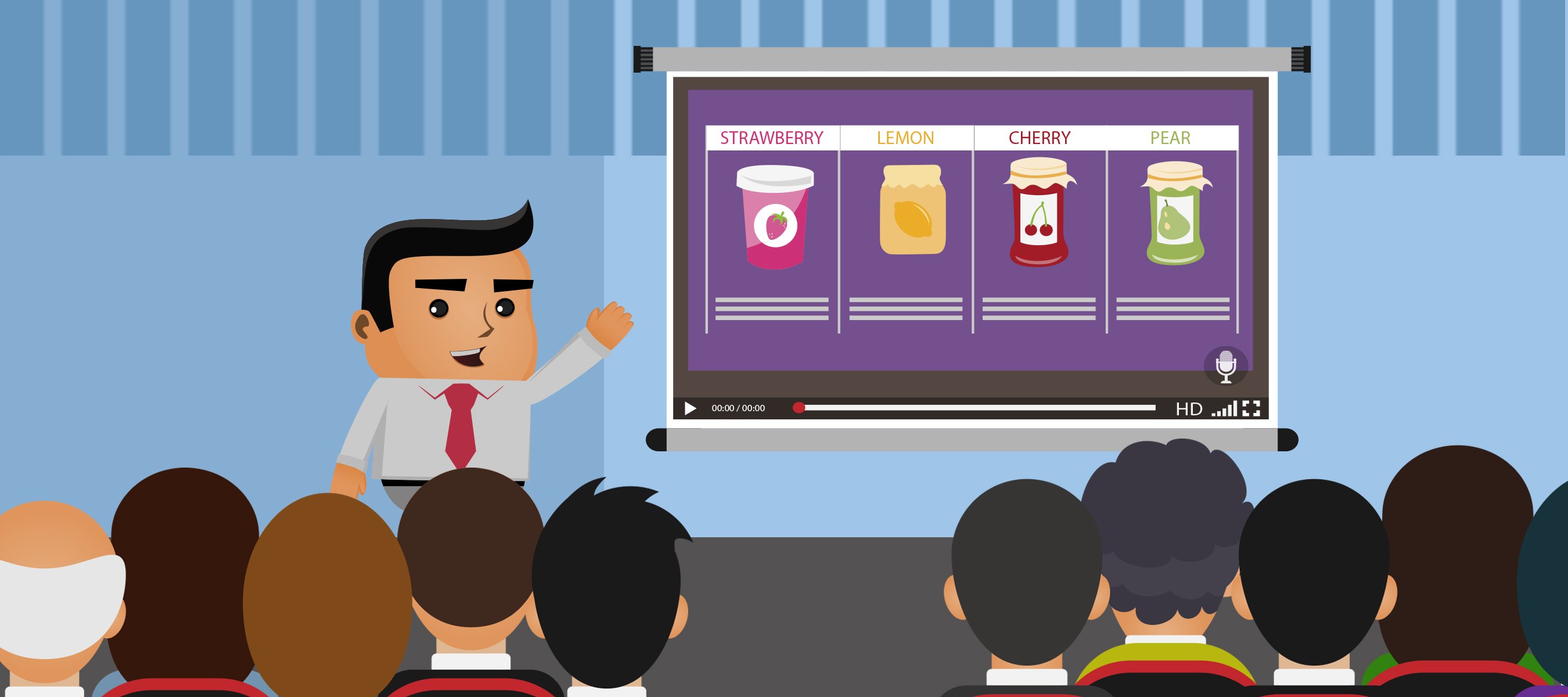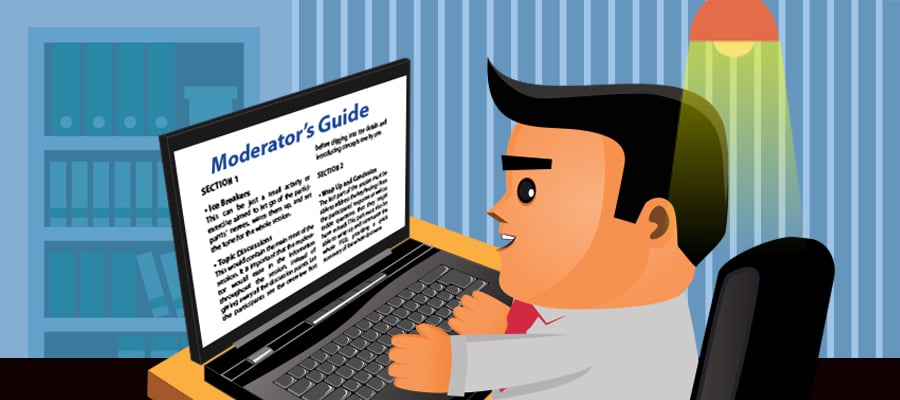Market research is an important aspect of creating a strong business strategy. Through conducting a market research, companies are able to gather the necessary information to analyze and identify their market as well as their competition. There is a multitude of ways to execute this, with different strategies and focus, encompassing qualitative as well as quantitative techniques.
While there are many ways to conduct a study, most businesses use one of the five basic methods – surveys, focus group discussions, personal interviews, observation, and field trials. Most quantitative projects lean towards surveys as it’s quick and easy to gather, while for most qualitative researchers, focus group discussions are favorable as it is less time consuming as opposed to personal interviews and still as insightful.
Focus group discussions (FGD) are a great way to gain knowledge on specific topics and bring about discourse between research participants. These discussions take place in neutral conditions and are facilitated by an assigned moderator.
For most research methods, the only focal point in recruitment processes is finding participants that are qualified for the study. However, for focus group discussions, moderators are also given of equal importance, as they are the ones who guide discussions and drives the conversation towards better clarity of the study.
This guide will take on the topic of market research moderation and will dive deep into the following:
- Understanding the Role of a Market Research Moderator
- Identifying the Right Moderator
- Creating an Effective Moderator's Guide
- Facilitating and Moderating a Successful Discussion
Understanding the Role of a Market Research Moderator

The Moderator is an integral part of the market research. It is important to choose someone highly qualified to take on this role as their actions and decisions will create a strong impact on the overall result of the study.
Moderators, as the name suggests, are the ones who facilitate the overall focus group discussions. They are the ones who create and develop discussion guides and are the ones responsible for probing the right questions to the participants, eliciting detailed and clear answers.
Moderators must also ensure that the discussion will address the research objectives while keeping it engaging for the participants. They keep the ball rolling, guiding everyone to stay on track with the goals of the study in mind.
Depending on the type of focus group discussion, a moderator’s role may change, but it would still focus on helping the discourse flow as expected. Here are some FGD types and a look at how each facilitates a discussion:
- Two-way Focus Group – one group observes while the other discusses the observed interactions and conclusions; moderators are expected to cater to both groups, despite their different tasks
- Dual Moderator Focus Group – requires two moderators, with one ensuring the progress of the session, and the other ensuring the topics are all covered
- Dueling Moderator Focus Group (Fencing-moderator) – Two moderators deliberately take sides on the issue under discussion to eliminate discourse between participants
Identifying the Right Moderator

Finding the right moderator for a market research project is crucial, as their role can determine the success of any study. Moderators affect the accuracy and reliability of the project, giving them immense power and responsibility throughout the process of data gathering and analysis.
As such, rigid assessments are made to test and gauge if a moderator would best fit for the research. Some of the determining factors are the moderator's methods and approaches, their background experience, their reporting and analytical skills, as well as their communication skills. Most businesses also ask for sample recordings from previous FGDs that the candidates have facilitated. Through this stringent process, clients and recruiters would have a feeling if one can help them reach their objectives and if one can make the most out of each session that they are going to conduct.
Aside from the usual background and qualification check, here are also some key questions that can help identify if you have found a suitable moderator for your project:
Is the moderator familiar with the marketing basics?
Moderators must have at least a background in market research, giving them a better understanding of their tasks and roles for the project. Being able to have a clear understanding of their position would help them develop a stronger and more insightful approach during a focus group discussion session.
Does the moderator understand the study's industry?
No matter what the background of the study is, moderators must at least have some knowledge about the industry that they will work on. This is essential when it comes to crafting questions, probing participants, and interpreting findings. Additionally, industry knowledge also creates credibility, especially when reporting results to executives or handing discussions with high-profile participants.
How is the moderator handling the participants?
A focus group discussion usually brings in participants from all walks of life. A moderator must be able to create a rapport with the participants no matter who they may be. They must also be able to extract answers from people, digging beyond the top-of-mind answers and tapping deeper thoughts; drawing out attitudes, opinions, feelings, perceptions, and behaviors of the participants.
Can the moderator create discussions?
While focus group discussions are usually guided, it is important that the moderator knows how to guide and manage group dynamics in order to get relevant data. They must know how to explain questions and they must know how to create conversations by raising the right queries. Moderators do not read questions; they deliver questions and create a ripple of discussion.
Is your moderator neutral and objective?
No matter the topic may be, moderators must be able to stay objective and neutral. They must be able to stand in the middle ground and analyze the output without personal bias and without being influenced by preconceived ideas of the outcome.
Is the moderator flexible and adaptable?
Good moderators are the type of facilitators that knows how to adapt when unexpected discourse arises. They know when to explore another line of thinking, instinctively delving into a different side of the topic to generate valuable insights. They must be flexible enough to ride the waves of discussions but still keep the group on track to achieve the objectives of the session.
Creating an Effective Moderator’s Guide

No focus group discussion may proceed without the moderator’s guide. It is an overview of how the session would go – dictating the flow of discourse and deciding the amount of emphasis placed on each topic. This also serves as a reference tool for the moderator while facilitating the session.
While it may already include all the points for discussion, it is important to note that this must only serve as an outline, and the actual delivery of these questions should be conversational and adaptable to the participants.
Here are some of the key points when it comes to creating a moderator's guide. Usually, this comes out as a bullet point of topics, although there are a few clients that require a script-like layout. Again, this should just serve as directions and not something to be read out loud:
- Introduction
This is where the groundwork is laid down. Rules are set and participants are briefed on the details of the study and how the session would proceed. It is also important to cover other important aspects of the research such as the rationale behind the study, the honoraria/incentive/payment for the participants, the confidentiality and anonymity of the participants’ details, as well as the running time for the session and other logistical items. Disclosure of all types of A/V recording is also required.
- Ice Breakers
This can be just a small activity or exercise aimed to let go of the participants' nerves, warm them up, and set the tone for the whole session.
- Topic Discussions
This would contain the main meat of the session. It is important that the moderator would ease in the information throughout the session, instead of giving away all the discussion points. Let the participants see the overview first before digging into the details and introducing concepts one by one.
- Wrap Up and Conclusion
The last part of the session must be able to address the key findings from the participants’ response as well as tackle questions that they might have missed. This part must also be able to wrap up and summarize the whole FGD, providing a quick summary of the whole discourse.
Facilitating and Moderating a Successful Discussion

There are different ways to facilitate a focus group discussion. Depending on the moderator’s approach and methods, each session may be different, but here are some important points to remember when conducting an FGD:
Choose an ideal physical or virtual environment
Choose a space where the group would feel welcomed and comfortable. It should be private, easily accessible, and free from distractions. If it is a web-enabled interview or focus group session, choose a marketing research services provider with technology that is convenient, easy-to-use, and ensures a hassle-free interview or focus group experience.
Build rapport and make participants feel valued
It is important that during the discussion, each participant would feel like their opinions are valued. This empowers them and makes them feel more confident to share their thoughts within the circle.
Ask one question at a time
To get clearer answers from participants, it is a rule of thumb to only ask one question even if the next questions would go together with the first. If necessary, just make follow-ups and don’t overwhelm them by asking too much.
Give the participants time
While it is important to be time conscious, it is also crucial to let participants have their time to think about their answers.
Use the ‘funnel method’ when asking questions
Instead of getting straight to the point, it is a good practice to start the topic with broad questions. This way, respondents will be able to give more insights that might be useful when moving forward to the main discussion points.
Start with the positives
When asking questions, it is always better to start with the positive questions to keep the conversation balanced.
Deliver unaided questions
Avoid putting words into other people’s mouths. To keep things neutral, it is best to deliver unaided questions and exhaust their responses before helping them out.
Ask open-ended questions
Asking open-ended questions is a great way to get valuable and spontaneous insights from participants. Usually, this would lead to a discussion of issues that may not be part of the original guide but is just as important.
Use probes
Do not shy away from asking questions to get a better quality of answers. Here are some helpful probes that you could easily use during discussions:
- Can you explain further?
- Can you give me an example?
- Tell us more.
- Is there anything else?
- Has anyone had a different experience?
- Does anyone see it differently?
Sources:
https://en.wikipedia.org/wiki/Market_research
https://www.allbusiness.com/the-five-basic-methods-of-market-research-1287-1.html
https://sswm.info/sites/default/files/reference_attachments/ETR%20n.y.%20Conducting%20Focus%20Group%20Discussions.pdf
http://strategicinitiatives.ca/blog/uncategorized/whos-the-mvp-on-your-qualitative-research-team/
http://www.regionalbusiness.ca/images/pdfs/market_research_guide.pdf
http://www.marketingprofs.com/articles/2013/12063/five-tips-for-getting-the-most-from-your-qualitative-researcher
http://www.focusgrouptips.com/focus-group-moderators.html
http://evolve-research.com/blog/8-essential-skills-every-focus-group-moderator-must-have
https://nextstepconsult.wordpress.com/2010/03/07/qmrs7-discussion-guide/
http://www.focusgrouptips.com/moderator-guide.html
https://www.greenbook.org/marketing-research/Everything-In-Moderatiom-12-Tips-For-Moderating-Healthcare-Market-Research-1003082



